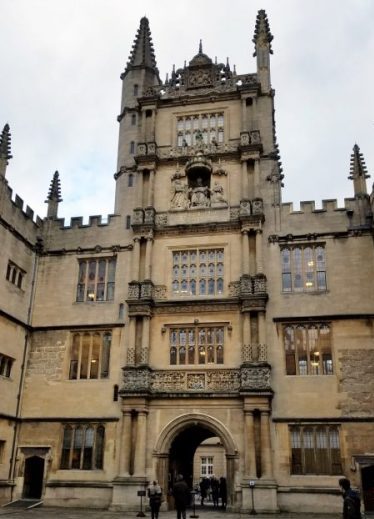
Since the early days of universities, faculties have been criticized as inward-looking, cloistered — literally and figuratively — from the world around them. More recently, such criticisms have become sharper as the “value” and rising cost of a liberal arts degree are repeatedly challenged.
A recent stay at Oxford offered a different perspective. While it is true that the colleges are separated from the hustle and bustle of the city, Oxford academics, contrary to popular perceptions, are deeply engaged in the “real world” outside the college walls.
My visit to Oxford was filled with rich conversations about leadership and many instances of faculty acting as leaders. A debate between a German-born Brexit supporter and a detractor drew a large audience of both students and faculty. A second talk — this time on Bitcoin — found fellows and visitors trying to understand how the world around them has changed. And at the relatively new Blavatnik School of Government, I learned how students, who come from 50 countries and have significant leadership experience in local and state governments or NGOs, are upping their understanding and skills of leadership.
Our counterparts in the UK struggle with many of the same leadership questions that we interrogate at Jepson. How do we build an organization whose members demonstrate integrity? How do we avoid corruption? What are the relationships among individuals, rules, and the group?
In one conversation, a philosopher discussed his work with a large data set to measure the characteristics of organizations that are the opposite of corrupt. Ultimately, he wishes to address the very practical question of how to turn a corrupt organization (or state) into one characterized by trust and reciprocity. We spoke about the difference in virtue between an organization in which those involved are simply not tempted to do a calculus of the expected benefits and costs of doing wrong, versus an organization in which people usually comply with rules (or the law) and sometimes, when the calculus shows expected benefits exceed costs, do the wrong thing. The former is more robust but the latter may be where an organization has to start. Since we cannot count on virtuous people always leading organizations, it is best to develop appropriate rules and then a culture of rule-following. This Humean notion of worst-case theorizing provides an important insight into leadership.
Oxford is thriving. The city is congested with buses, cyclists, and pedestrians and that is as it should be — alive and exciting, intellectually and otherwise. In the rarified halls of its colleges, faculty lead by doing as they attempt to resolve the hard, real world problems of leadership.

Comments are closed.